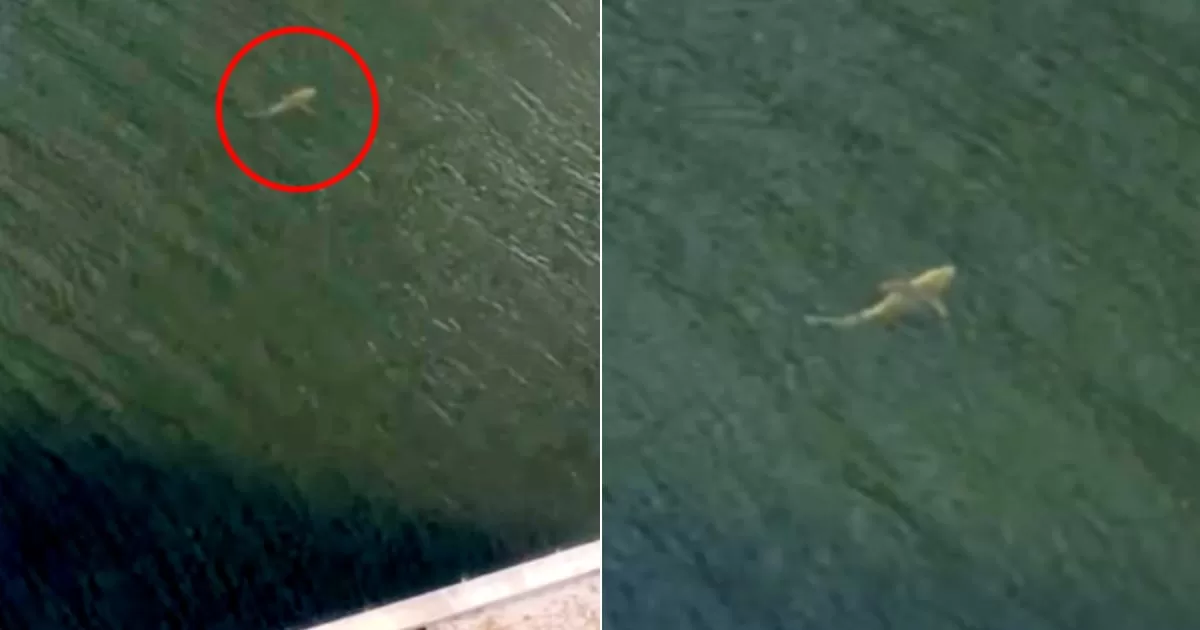Step.- To share information, guide and educate users about the items and products they can bring into the United States, elements of the Office of Customs and Border Protection -CBP- held a public outreach event on Wednesday at the crossing facilities. North Pass border.
After three years in which this type of event was not held, due to the presence of the coronavirus pandemic, the agents set up an exhibition to show users informative brochures about the services they offer as well as the products, articles and food that can enter the country and which are prohibited.
“It is very important that the public declare everything they bring with them when crossing and report them to agricultural inspectors,” said Sandra Hawkins, a CBP spokeswoman, as she showed some fruits and vegetables that should not be brought in.
Within the list of the most common agricultural items that people bring with them when crossing the land border and are not allowed by CBP are: tomatoes, peppers, avocados. eggs, pork products: raw and/or cooked, poultry and their products. Plants, seeds and flowers are prohibited.
And it is that although this information is available at the ports of entry and on the various digital platforms, travelers who plan to visit the United States, either by car or plane, always have doubts about what foods are allowed.
However, when a person arrives at a US port of entry, the Customs and Border Protection (CBP) officer will always ask if they have items to declare. People who travel are required to declare the food and items they are carrying.
Clothing, shoes, boots or skins may be items that are on the prohibited list, so travelers should be aware especially of those made with the skins of endangered animals.
“On many occasions, people do not know the origin of the clothes they are wearing or that they carry in their luggage. They think it’s from a non-prohibited animal,” said CBP Agriculture Inspector Stacey Ortega.
As an example, he stated that sea turtle, elephant and pangolin boots are among the animal products in danger of extinction, as well as crocodile skins, feathers and eagle claws, among others. Those who try to cross without declaring them can face fines of up to $500.
According to the authorities, it is possible that users can bring food such as fruits, meats or other agricultural products depending on the region or country from which they travel and are unaware of the restrictions on these products, therefore the importance of otherwise declared may be in fines ranging from 300 to 10 thousand dollars.
The objective of the federal agency is: to protect the health of the community, to preserve the environment and to prevent the introduction of devastating diseases in plants and domestic animals.
It was said that CBP allows the entry of the vast majority of food from its country of origin into the United States, with the exception of those mentioned above.
Food declaration is required for all persons entering the United States whether by land, air, or sea. US citizens, permanent residents or tourists.
During the event, information was also disclosed related to the procedures that must be followed by people who wish to travel beyond 25 miles or 40 km from the border, or stay more than 30 days in the United States.
It was explained that through the CBP One application, launched in October 2020, interested parties can request certain services from the Customs and Border Protection Office.
The app seeks to improve the security of the United States borders as well as legitimate travel and commerce at the border, CBP established, after explaining the ins and outs of the registration and use of Sentri/DCL, as well as the use of the CBP One application. that allows travelers to submit their travel information in advance before crossing the border to obtain the I-94 form and even start the process of an appointment for those seeking to apply for the political asylum program.
Also, the use of CBP One seeks to streamline the port of entry experience, reduce wait times, and allow for a safe and orderly process for ports of entry and all travelers.
“Our goal is to organize events like this routinely in the future. The information we will share is available online, but this event gives those who feel more comfortable talking to a person the opportunity to do so,” explained the director of the Port. from CBP El Paso, Ray Provencio.
CBP subject matter experts were available throughout the morning to discuss a variety of topics and answer user questions regarding Sentri/DCL enrollment and use, CBP agricultural requirements, among other questions.



